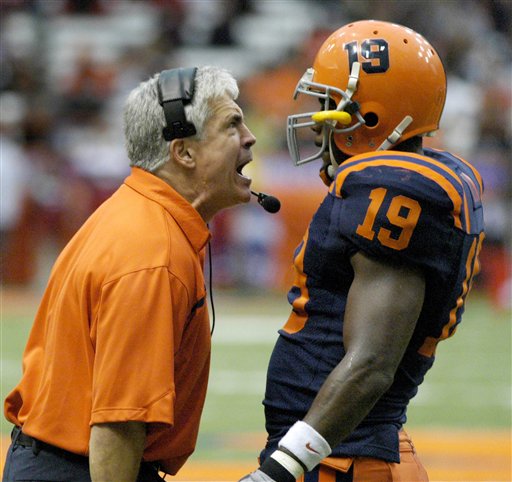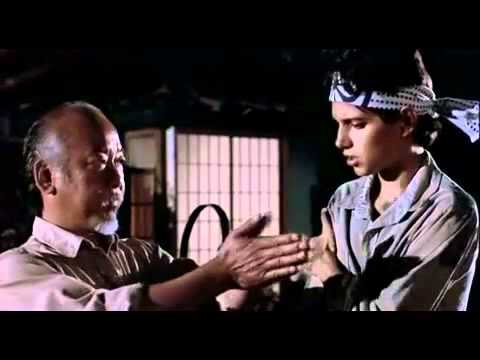When people talk about the life of Jesus, depending on their temperament, they tend to focus on one extreme or the other; either Jesus meek and mild, or Jesus coming on the clouds of glory ready to judge the world. What few tend to focus on is the more definitively human aspect of our Lord, like did Jesus ever have any amusing quirks. While it is ultimately difficult to answer this question adequately, Scripture does lend us some insight into other aspects of Jesus' behavior. Scripture attests that there were times that Jesus was incredibly merciful to those around him, but then there were other times in which he appears to be arbitrarily harsh even when the individual whom he is addressing seems sincere. Which begs the question: is Jesus in a bad mood during these encounters, or is he just plainly being rude?
Now before you consign me to the 9th circle of hell for my insolent statements about our Lord, let me first present the circumstances where this alleged behavior occurs. The first instance of this behavior comes at the wedding feast of Cana, wherein Mary the mother of Jesus asks her Son for a teeny tiny favor. She wants him to replenish the wine that had run dry at the party. However, when she asks him to do this, he seems more than a little dismissive, if not downright ornery; "Woman, how does your concern affect me?" (John 2:4) Later on in his ministry a Syrophoenician woman (code name for pagan) comes to Jesus specifically because her daughter is apparently ill with a demon. She begs him to heal her daughter. What does Jesus meek and mild say in response? "Let the children first be fed (i.e. Israel), since it isn't wise to take the bread out of their mouths and throw it to the dogs." (Mark 7:25-30) Wow. I think he just called her a female dog (which is never a polite thing to call a woman). According to this account, Jesus' bedside manner is more akin to Dr. House's than to what we have come to expect from the divine physician.
The third instance of this rudeness occurs when he meets the Samaritan woman at the well. Also regarded as a pagan by devout Jews, he begins to speak to her as she looks to draw water from the well. After a brief dialogue about Jesus' identity, he asks her where her husband is. She responds that she is not married. And all of that would have been fine if he had just left it at that, but he doesn't. Jesus instead responds to her statement in a way that is more than a little condescending; "What you have said is true (you have no husband). The fact is you have had five husbands and the one that you are with now is not your husband." (John 4:17-18)
In truth I believe there are two questions that need to be answered here. The first is of course whether or not Jesus is rude. The second follows from that, which is whether or not Jesus is sexist; after all, every single one of the above mentioned encounters involve women. Avoiding a long historical debate about the cultural context and Biblical criticism, let us simply deal with the passages as they are. First of all, it is difficult to regard Jesus as particularly sexist considering the fact that he speaks to both men and women in the New Testament in a brusque fashion. In other words, since when did it become sexist to treat women as badly as men? However disquieting that may be, isn't this a sign of equality? The only difference I can see between the guys and the girls in this instance is that the guys (except for a few instances) do not receive what they ask for, while the women do.
As for the "rude" behavior itself, perhaps the only way to go about assessing it is by recognizing that Jesus did not come to this world first and foremost to perform miracles, provide kind words, or even to heal people of their physical ailments. Rather, he came as a teacher and a divine coach whose role it was not only to provide a means of salvation, but to draw greatness out of his spiritual athletes. And one of the ways any great coach tests his players is by testing them especially in the areas of their greatest weakness. The fact of the matter is- it is not so easy to enter heaven, or as Jesus so concisely puts it; "Strive to enter through the narrow gate, for many, I say, will seek to enter and will not be strong enough..." (Luke 13:2). He is not so much concerned about celebrating our natural talents (which will be there regardless) as he is in challenging us in those ways in which are most spiritually soft.
Beyond natural skill, the greatest test of any champion is his willingness to be taught. Indeed, he must be humble enough to do whatever the master tells him, however odd the request may initially seem (which incidentally was Mary's instruction to the wine stewards). The spiritual athlete must also be tough enough to withstand the coach's challenge, as the Syrophoenician woman demonstrated. In other words, when corporal Christ gets in your grill and challenges your lack of heart and grittiness, you must demonstrate to him that you are not afraid to get your jersey a little dirty and fight. It is worth noting that on any number of occasions Jesus did this during his ministry. Not everyone responded so positively to his technique. In fact, some disciples even "quit the team" on account of Jesus challenging them. Apparently the Syrophoenician woman was much tougher than they, for instead of complaining about the way he spoke to her, she responded to him in a way that utterly disarmed him. Not only did she not get offended by his words, she cleverly used his own words as means to make a case for her daughter; "... even the dogs get the food that falls from the master's table...". If Jesus were French he would have said "touché", but instead he praised her for her faith (actually the Scripture says he was "amazed"). And that's the whole point: he did not say what he said to her in order to degrade her anymore than a good coach yells at a player in order to destroy their spirit. To the contrary, Jesus did what he did as a means to test her humility, or rather to challenge her to a game of spiritual limbo... which by the way, she won.
In order to be a master at anything you must first recognize that you are not the Master. When you recognize this very important detail, you will then be in a perfect position, as well as disposition, to receive all of the wisdom and learning of the Teacher. To whatever extent you believe that you are beyond training, or superior to master, is the extent to which you will cease to develop into one yourself.
The final way in which the divine coach tests the spiritual athlete is not by avoiding their weakness, but by going straight after it. If a man loses a leg and receives a prosthetic one, what kind of therapist would spend all of his time working on the leg that is in perfect condition? In the same way, when it comes to the Samaritan woman, Jesus goes right for the area in her life that clearly requires the most therapy and healing. But whereas our culture might be tempted to turn her into a victim, or even regard her as some kind of liberated hero, Jesus goes right to the heart of the matter and calls her out on her loose living, once again not as a means to humiliate her, but as a means to expose it in order to heal it.
The scene below from the movie Charlie and the Chocolate Factory always seemed kind of strange to me until I began to fathom this notion of spiritual training. Although the movie has numerous elements that one might question (like is Willy Wonka a little sadistic, or what?), the end does seem to highlight this interesting paradox of the stern teacher, whose sternness is really only a mask worn in an attempt to inspire his players. No, Charlie is not perfect, but truth and goodness covers a multitude of sins. Anyhow, recognizing this in the movie helped in some ways to unlock the Gospel mystery for me.






No comments:
Post a Comment